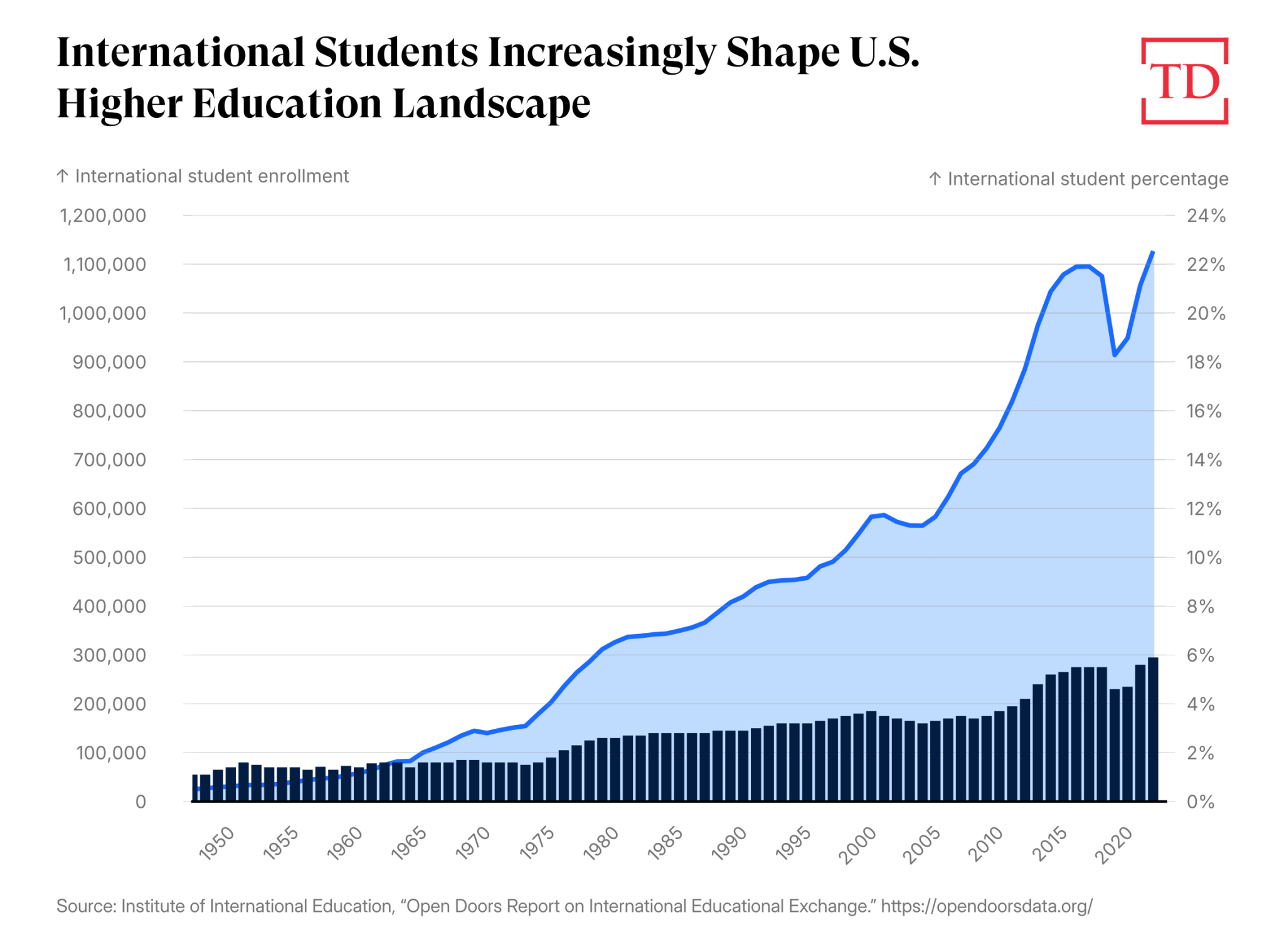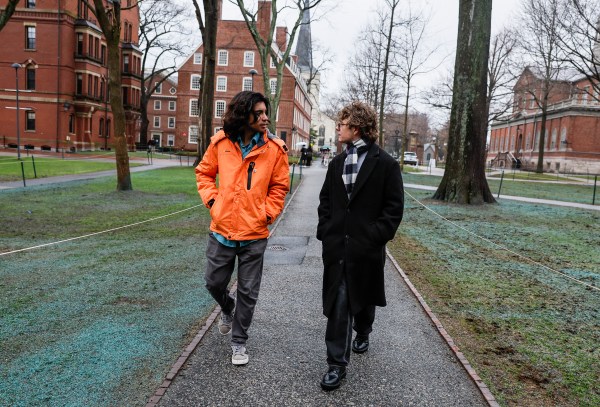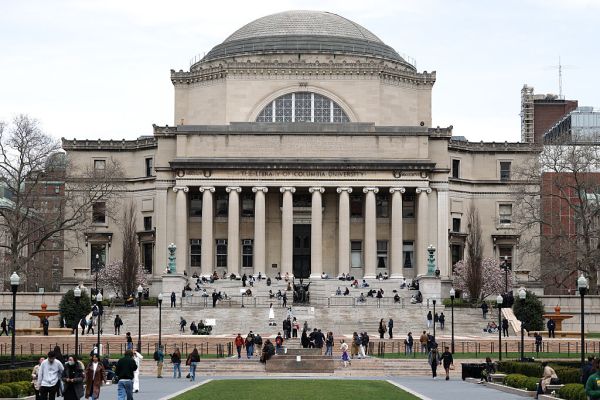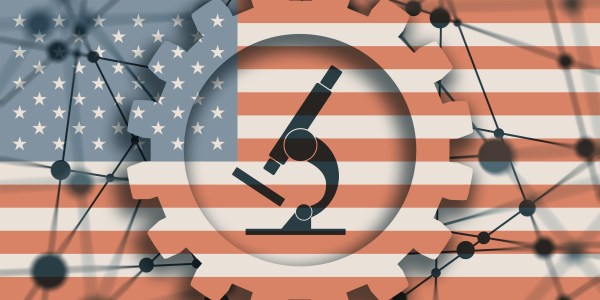Happy Wednesday! In a fun Canadian Parliament tradition (not a description we often give), lawmakers physically drag the new speaker of the House of Commons to the front of the chamber on his first day. Our summer interns start in two weeks; we’ll keep this in mind.
Quick Hits: Today’s Top Stories
- Russian forces captured four Ukrainian villages in the northeastern Sumy region near the border between the two countries on Tuesday. Russian President Vladimir Putin called for his military to establish a “buffer zone” in the region, and the Russian Defense Ministry had announced its intent to create a “security strip” in Sumy. Russia had launched a massive drone and missile attack over the past several days, but the bombardment subsided on Tuesday. Meanwhile, U.S. President Donald Trump is considering imposing sanctions on Russia and said on Tuesday that Putin is “playing with fire” in continuing to refuse to participate in ceasefire talks with Ukraine. Despite the verbal warnings, Russia’s foreign minister said on Tuesday that Trump and Putin have agreed to a prisoner exchange between the two countries—though the State Department had yet to confirm any details as of early Wednesday morning.
- The Trump administration is planning to cancel all remaining federal contracts with Harvard University due to alleged antisemitism and discrimination on campus, according to a letter sent to federal agencies on Tuesday. According to the Wall Street Journal, the cancellation would affect 30 contracts valued at $100 million. The Government Services Agency (GSA), which sent the letter, instructed agencies to “seek alternative vendors” and send a list of contract cancellations by June 6, with critical contracts being transferred to other vendors to complete the work. The Trump administration had already attempted to halt the university’s ability to enroll international students (a judge temporarily paused the effort last week) and threatened to redirect grant money toward trade schools across the country.
- The Trump administration on Tuesday ordered U.S. embassies and consular sections to pause new student visa interviews as it prepares to expand social media vetting for international students. The memo, signed by Secretary of State Marco Rubio, does not specify what the vetting would entail, but it does reference executive orders about preventing terrorism and antisemitism. Earlier in Trump’s term, the administration revoked nearly 2,000 international students’ ability to study in the U.S.
- Palestinians in Gaza stormed an aid distribution center on Tuesday after a gate there collapsed due to pressure from the gathering crowd, forcing staff to retreat and prompting Israeli soldiers to fire warning shots above the crowd. A group called the Gaza Humanitarian Foundation, a private company backed by the U.S. and Israel, is overseeing aid distribution. The chief executive of the group resigned on Monday, but two of the four planned aid centers are currently operating, according to the Israeli military. The group did say that it was able to distribute nearly 500,000 meals through the site on Tuesday.
- German Foreign Minister Johann Wadephul threatened unspecified intervention against Israel on Tuesday over the war in Gaza, a sign of Europe’s continued shift away from Israel. The statement comes after German Chancellor Friedrich Merz said on Monday that Israel’s actions in Gaza can “no longer be justified,” and the U.K., Canada, and France threatened “concrete actions” against Israel on Monday if aid restrictions are not lifted and the war in Gaza continues. The U.K. also suspended trade negotiations with Israel, and European countries—led by France—are considering officially recognizing Palestine as a state. Trump has also tempered his support of Israel in recent days, saying on Sunday that he is working to end the war in Gaza as quickly as possible.
- NPR and three Colorado public radio stations filed a lawsuit against the White House on Tuesday related to Trump’s executive order ending the use of federal funds for NPR and PBS. The order, signed in early May, ended federal funding of NPR and PBS because “neither entity presents a fair, accurate, or unbiased portrayal of current events.” The lawsuit alleges that the order violates First Amendment protections of the press and free speech and oversteps executive authority.
- The Centers for Disease Control and Prevention on Tuesday ended its recommendation that healthy children and pregnant women should receive routine COVID-19 vaccine shots. Health and Human Services Secretary Robert F. Kennedy Jr. announced the change in a video posted to X, standing with National Institutes of Health Director Jay Bhattacharya and Food and Drug Administration Commissioner Marty Makary. “We are now one step closer to realizing @POTUS’s promise to Make America Healthy Again,” Kennedy said in the video. He also criticized the Biden administration’s recommendation of COVID-19 shots despite what Kennedy called the “lack of any critical data” to support repeated booster vaccination. The CDC previously recommended that everyone older than 6 months receive the latest vaccine, but according to its own data, just 23 percent of U.S. adults and 13 percent of Americans under the age of 18 had done so.
- British police officials said Tuesday they arrested a man for attempted murder after he allegedly rammed his car into a crowd in Liverpool, England, one day earlier, injuring 65 people—including four children. The suspect reportedly followed an ambulance to get around barriers blocking off a parade celebrating Liverpool F.C.’s title in Premier League soccer. Although authorities are continuing their investigation, the incident is not being treated as terrorism, with police saying that the suspect, 53, was likely on drugs.
School’s Out For … TBD

When we began working on today’s newsletter, we initially intended to write a report on the White House’s efforts last week to revoke Harvard University’s certification, under the Student Exchange and Visitor Program (SEVP), to enroll international students, along with its cancellation of the last remaining federal contracts with the university. The move threw into question the status of not only future applicants, but also foreign students who were currently enrolled and had left the country for vacation or business. The university swiftly challenged the White House in court, and a judge granted a temporary injunction hours later.
But then on Tuesday afternoon, the legal landscape for all international students, not just Harvard’s, became significantly more complicated. A State Department cable signed by Secretary of State Marco Rubio, first reported by Politico, directed all U.S. embassies and consulates to pause scheduling student visa interviews for new students. The directive said that the pause would last “until further guidance” is available in the coming days.
The revocation of SEVP certification and the pause in visa interviews are pieces of a larger legal struggle between Harvard and the White House as the university seeks to fight back against what it claims are violations of its constitutional rights. Also on Tuesday, the General Services Administration directed federal agencies to cancel $100 million worth of vendor contracts with Harvard, terminating the last remaining federal money going directly to the university. But the moves against international students, while focused on the United States’ oldest university for now, could have much broader effects on America’s system of higher education.
Last week, the attention of both the Trump administration and the press was focused on Cambridge, Massachusetts. “This administration is holding Harvard accountable for fostering violence, antisemitism, and coordinating with the Chinese Communist Party on its campus,” Department of Homeland Security Secretary Kristi Noem said in a Thursday press release announcing that the university would no longer be able to enroll foreign students. She alleged that some foreign students had participated in antisemitic protests, and that others trained by Harvard had allegedly helped facilitate the Chinese government’s genocide of its Uyghur minority.
If allowed to go through, the change in status would have drastic effects on Harvard. Nearly 7,000 international students attend the university—including both undergraduate and graduate programs—making up roughly a quarter of its total student population. They are part of a decades-long trend of increasing foreign enrollment in U.S. universities: More than 1.1 million foreign students study at the undergraduate and graduate levels in the U.S., according to the Institute of International Education’s 2024 report, constituting 6 percent of the total U.S. higher education population—an all-time high.

“This revocation is a blatant violation of the First Amendment, the Due Process Clause, and the Administrative Procedure Act,” Harvard’s attorneys wrote in their legal challenge filed a day after the order. “It is the latest act by the government in clear retaliation for Harvard exercising its First Amendment rights to reject the government’s demands to control Harvard’s governance, curriculum, and the ‘ideology’ of its faculty and students.” U.S. District Judge Allison Burroughs paused the administration’s sanctions, pending the lawsuit, later that same day.
Legal experts who spoke to TMD say that Harvard’s challenge rests on firm legal grounds. “I would say that Harvard is going to win its lawsuit on both procedural and substantive grounds,” Stephen Yale-Loehr, a retired immigration law professor at Cornell University, told TMD. Procedurally, he noted that the federal government had failed to provide Harvard sufficient notice to appeal the decision, a requirement of federal law, and also failed to provide sufficient evidence for its claims. Substantively, Yale-Loehr pointed out that by specifically targeting Harvard and seeking to exert control over its curriculum, the White House was likely violating the First Amendment right to academic freedom and free expression, along with the privacy rights of international students.
The administration’s proposed remedies for Harvard’s alleged violations of civil rights law (rejected almost immediately by the school) were outlined in an April letter from the Federal Task Force to Combat Anti-Semitism. The reforms demanded by the government—which also stretched the bounds of legality, according to many First Amendment lawyers—included outside audits of curricular material and hiring practices, reports on disciplinary action taken against international students, and wide-ranging changes to disciplinary procedures.
While the government can take action against a broad range of university activities to enforce compliance with the 1987 Civil Rights Restoration Act, the task force’s reforms are unlikely to pass legal muster, said Adam Goldstein, the vice president of strategic initiatives at the Foundation for Individual Rights and Expression, especially those that threaten to violate other constitutional rights. “You can’t censor your way out of censorship,” he said.
Even if Harvard is likely to win in court, significant damage and uncertainty can be inflicted in the meantime, as the Niskanen Center’s Gilbert Guerra notes in a piece for our website today:
The effects extend beyond potential academic disruption. Students report canceling travel plans, losing internship opportunities, and experiencing severe anxiety about their future ability to stay in the country. The timing of the order is also particularly challenging, as most deadlines for transferring to a different university passed in March, leaving few options for students if the revocation takes effect.
The move also threatens hundreds of recent Harvard graduates on Optional Practical Training (OPT), a program that allows international students to work in the U.S. for varying lengths of time depending on their level of education and field of study (STEM OPT grants a two-year extension to standard OPT). According to an estimate by Cecilia Esterline at the Niskanen Center, roughly 2,000 recent Harvard graduates would lose their legal work status under this order, potentially ending their careers at American companies and research institutions for good.
But the State Department’s pause of visa interviews will likely have effects far beyond Harvard. “It’s the absolute worst timing,” said Yale-Loehr, pointing out that foreign students can only apply for a student visa after receiving an acceptance letter from and making a deposit to a U.S. university. The deadline to accept an offer of admission was May 1, meaning that relatively few students have had the chance to apply for and undergo an interview with consular officials. Uncertain of when they can apply for a visa, or even whether foreign students will be allowed to enroll in their chosen university, some will undoubtedly accept offers from other countries, he noted.
A decline in foreign enrollment would certainly hurt American universities’ budgets, but it won’t be Harvard or other Ivy League institutions that feel the effects the most. “For public research universities, this is a particularly important source of income,” Gaurav Khanna, a professor of economics at the University of California, San Diego, who studies the economics of higher education and international students, told TMD. After the 2008 financial crisis, he noted, many public universities faced steep budget cuts. Top-ranked “Public Ivies,” such as the University of Michigan, could draw on a wealthy donor base and attract out-of-state students paying higher tuition to make up the shortfall.
But schools with slightly less prestigious reputations, such as Michigan State, instead turned to wealthy international students from countries like China and India, who were quite willing to pay far more tuition than in-state students, in effect subsidizing them. So while many of the universities with the highest percentage of international students are private schools, the list of schools with foreign students contributing large shares of their operating budget includes many more state schools, as well as larger private universities.
These schools generally have much lower per-student endowments than elite, wealthy private schools like Harvard. In 2022, for instance, the per-student endowment of University of California, Davis was roughly $17,000. That of Northeastern University, a large private school in Boston, stood at around $40,000. Harvard’s was more than $2 million.
The result, Khanna told TMD, is that wealthy schools like Harvard were among those best-equipped to weather a probable decline in international students. “There isn’t a lot of slack in the revenue streams for the public universities,” he said.
International enrollment in U.S. institutions was already declining even before the Trump administration’s most recent moves, with funding cuts, political uncertainty, and the revocation of visas already having an effect. Data from the Student Exchange and Visitor Information System, a government monitoring service, shows that between March 2024 and March 2025, the number of international students in the U.S. declined by 11.33 percent. New survey data released earlier this month also showed that the number of enrollments in postgraduate programs, which international students are most likely to enter, has declined by 13 percent year over year.
The White House has sent mixed signals on whether it welcomes these trends. Last June, then-candidate Donald Trump said that he supported automatically granting green cards to students who graduate from U.S. universities. But he has also accused universities of allowing “radicalized lunatics” into the country through international enrollment, and his administration has conducted wide-ranging investigations into the political activities of foreign students.
With the U.S. becoming less hospitable to foreign students, other countries are looking to fill the vacuum. As Semafor noted over the weekend, at least three universities in Hong Kong have begun reaching out to international students accepted or enrolled at Harvard in an effort to woo them away amid the uncertainty. European universities have also sought to recruit scientific talent from U.S. universities, offering more reliable sources of funding and less political pressure. Germany’s new minister of culture, Wolfram Weimer, has suggested creating an “exile campus” in his country. “To students from Harvard and other American universities, I say: You are more than welcome in Germany.”
It remains to be seen how successful efforts like these will be. But international students in the U.S., or those considering coming here, are facing unprecedented legal uncertainty. No matter the legal merits of the White House’s actions, the rapid shifts in policy will make American universities, not least Harvard, less and less attractive as a destination for foreign students. “Without its international students, Harvard is not Harvard,” wrote Harvard’s lawyers in their lawsuit. That, in fact, may be the White House’s aim.
Today’s Must-Read

Data Is Destiny. Our Laws Should Reflect That.
Toeing the Company Line


Make Sarah and Yaron’s Memory a Blessing

Trump Administration Actions Against Harvard’s International Students, Explained

Our Debt Is a Problem for the Ages


Inside Israel’s Leadership Crisis
Worth Your Time
- TMD has written before about China’s nefarious trading practices and its habit of stealing intellectual property from U.S. businesses. In the Wall Street Journal, Heather Somerville reported on how one San Diego-based tech startup sent trade secrets to Beijing voluntarily. “TuSimple was a leader in the global race to develop self-driving trucks that could solve chronic driver shortages, make freight hauling cheaper and bolster military operations. Founded by two Chinese entrepreneurs with money from a Chinese business mogul, the San Diego-based company set a record when its truck traveled 80 miles in Arizona without a human driver. It shared that technical feat and others achieved on American highways with its partners in China, according to hundreds of pages of previously unreported company correspondence viewed by the Journal,” Somerville wrote. “The story of TuSimple’s technology transfer and the political imbroglio that followed laid bare the weaknesses in U.S. laws aimed at facilitating foreign investment while protecting American know-how. It is now informing a transformation of how the U.S. polices companies with Chinese ties. In February, President Trump told his administration to stop using a particular type of agreement intended to monitor the behavior of risky companies. That is in part because his advisers had been so frustrated by the scope of intellectual property TuSimple was able to export to China, people familiar with the matter said.”
- For The New Yorker, Joshua Rothman explored two prominent reports on an A.I.-powered future—one that says A.I. is going to become so powerful that it will eventually destroy humanity, and the other that argues that A.I.’s potential is wildly overstated. “Which is it: business as usual or the end of the world?” Rothman wrote. “‘The test of a first-rate intelligence,’ F. Scott Fitzgerald famously claimed, ‘is the ability to hold two opposed ideas in the mind at the same time, and still retain the ability to function.’ Reading these reports back-to-back, I found myself losing that ability, and speaking to their authors in succession, in the course of a single afternoon, I became positively deranged. ‘AI 2027’ and ‘AI as Normal Technology’ aim to describe the same reality, and have been written by deeply knowledgeable experts, but arrive at absurdly divergent conclusions. Discussing the future of A.I. with Kapoor, Narayanan, and Kokotajlo, I felt like I was having a conversation about spirituality with Richard Dawkins and the Pope.”
Presented Without Comment
CBS News: Emmanuel Macron’s Wife Brigitte Macron Appears To Shove His Face Upon Arrival in Hanoi
Macron’s office initially denied the authenticity of the images, before they were confirmed as genuine.
Later, Macron told reporters that he and his wife had just been joking around.
“We are horsing around and, really, joking with my wife,” he said, calling reports on the incident overblown: “It becomes a sort of geo-planetary catastrophe.”
Also Presented Without Comment
New York Times: Trump Pardoned Tax Cheat After Mother Attended $1 Million Dinner
In the Zeitgeist
Legendary director Wes Anderson’s latest film, The Phoenician Scheme, hits theaters this week and is already receiving positive reviews. One trailer features behind-the-scenes footage of its all-star cast.
Let Us Know
Do you think American universities currently enroll too many international students? What is the purpose of the higher education system?









Please note that we at The Dispatch hold ourselves, our work, and our commenters to a higher standard than other places on the internet. We welcome comments that foster genuine debate or discussion—including comments critical of us or our work—but responses that include ad hominem attacks on fellow Dispatch members or are intended to stoke fear and anger may be moderated.
With your membership, you only have the ability to comment on The Morning Dispatch articles. Consider upgrading to join the conversation everywhere.